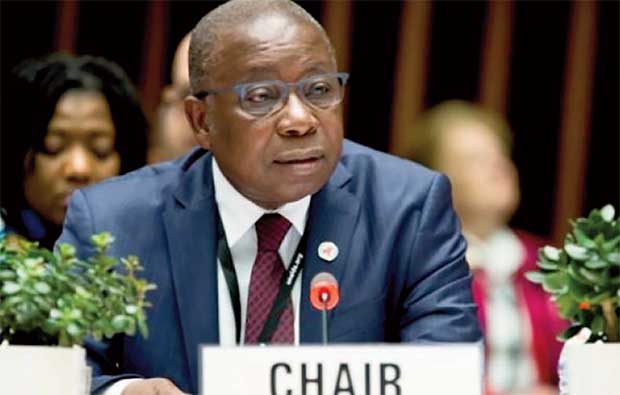Kwaku Agyeman-Manu
The Minister for Health, Kwaku Agyeman-Manu, has pledged the country’s commitment to the Global Health for Peace Initiative by the World Health Organization (WHO).
He made the pledge at the 75th World Health Assembly held in Geneva, Switzerland.
In his statement for the plenary debate, Mr. Agyeman-Manu expressed Ghana’s support for the theme for this year’s Assembly “Peace for Health, Health for Peace” and welcomed the WHO’s Global Health Initiative (GHPI).
The initiative envisions a theory of change based on equitable access to health services, health interventions that promote trust and dialogue.
It also strives for Universal Health Coverage (UHC), generate trust, and promote peace and reconciliation.
The sector minster indicated that the Sustainable Development Goals (SDGs), a global development policy framework and a universal call to action to end poverty, protect the planet, and ensure that all people enjoy peace and prosperity and UHC cannot be attained where there is no peace.
The endorsement by global leaders in September, 2019 of the Political Declaration of the United Nations High-level Meeting on UHC shows that there is enough political ambition and commitment by governments to increase health spending, reduce out-of-pocket payments, and inequalities by strengthening health systems based on strong Primary Health Care (PHC).
“The youth’s enormous potential can be realized by providing them with education and employable skills, as well as leveraging technology and public-private partnerships for job creation. This would help to reduce the burden of unemployment among the youth, which is a security threat,” he said.
According to Mr. Agyeman Manu, health for peace starts with providing fair and accountable governance and social support systems to the people, creating equal opportunities for decent livelihoods for all, and ensuring adequate security of lives and property.
He concluded that recognizing conflicts are a major obstacle to health and that a lack of access to health and basic social services can lead to feelings of exclusion, which are major drivers of conflict and violence.
By Jamila Akweley Okertchiri


